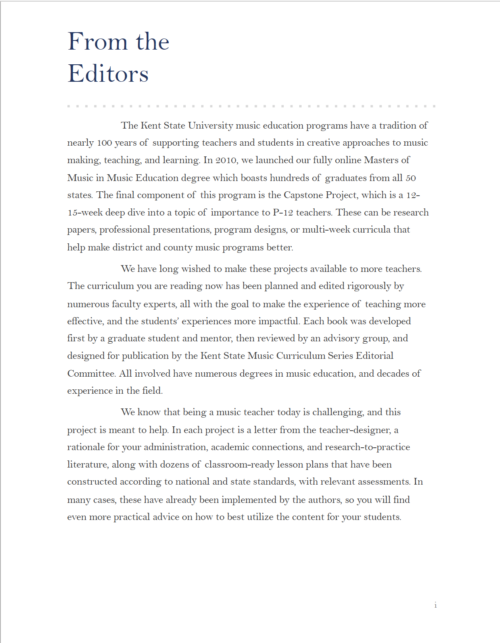-
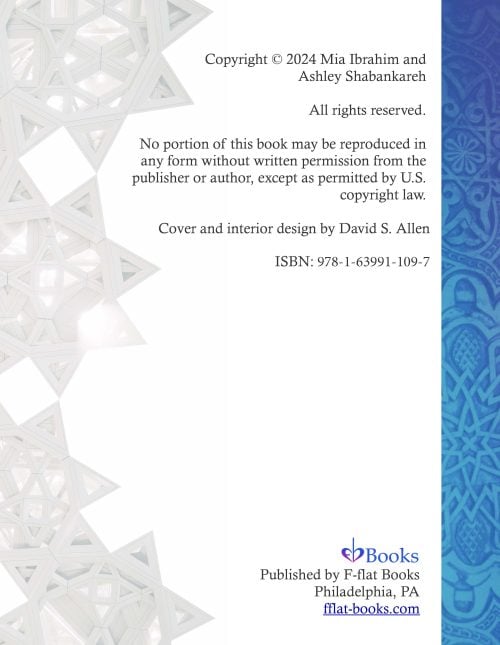
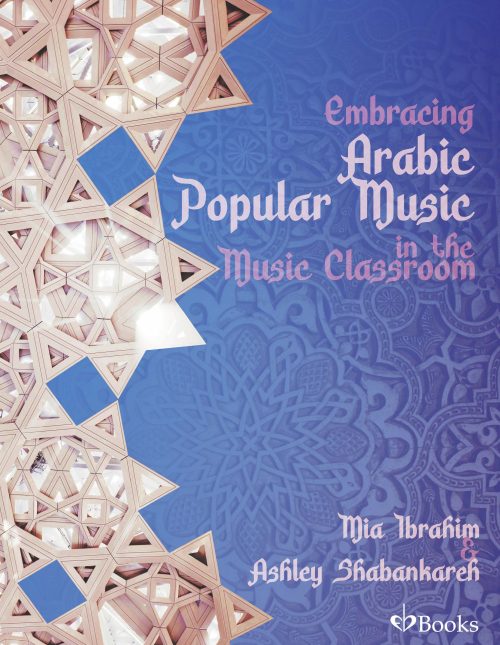 How do you incorporate Arabic popular music into the classroom? This comprehensive guide provides research, strategies, and practical steps for singing, dancing, and playing popular Arabic music with your students. Created by Mia Ibrahim with contributions from Ashley Shabankareh and F-flat community members, this resource is being released to honor the life and work of Mia. Proceeds from this resource will go towards the Mia Ibrahim Scholarship Fund, providing tangible opportunities for music educators to experience and learn how to incorporate popular music in their classroom through professional development opportunities.
How do you incorporate Arabic popular music into the classroom? This comprehensive guide provides research, strategies, and practical steps for singing, dancing, and playing popular Arabic music with your students. Created by Mia Ibrahim with contributions from Ashley Shabankareh and F-flat community members, this resource is being released to honor the life and work of Mia. Proceeds from this resource will go towards the Mia Ibrahim Scholarship Fund, providing tangible opportunities for music educators to experience and learn how to incorporate popular music in their classroom through professional development opportunities. -
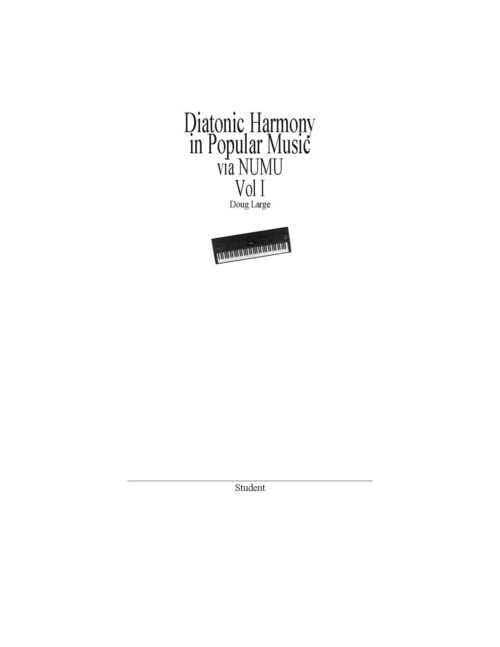
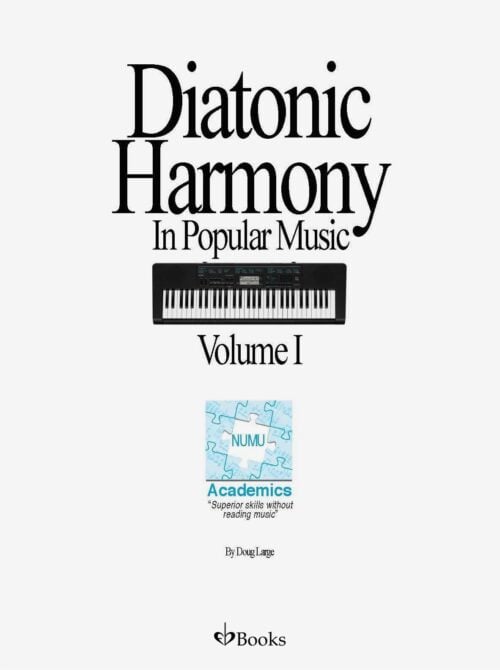
by Doug Large
(60 pages) This is an eBook for digital download. Harmony and Composition made easy with NUMU is designed for the academic calendar with exercises, tests, mid-year and final exams. Once a musician understands even a little harmony (how chords are built) and composition (how chords fit together), it sets them free. An in depth study of Harmony & Composition from a ground-breaking, simplified perspective. Music is based on interval formulas. Only NUMU (Number Music) can clearly illustrate these formulas. This eBook comes with a separate PDF containing midterm and final exams! -
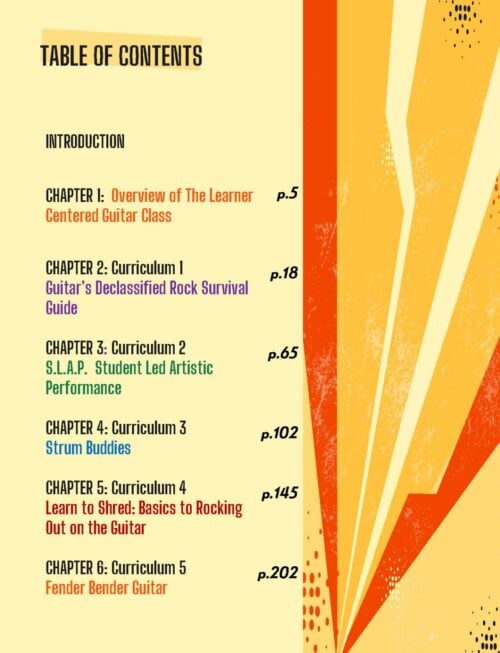
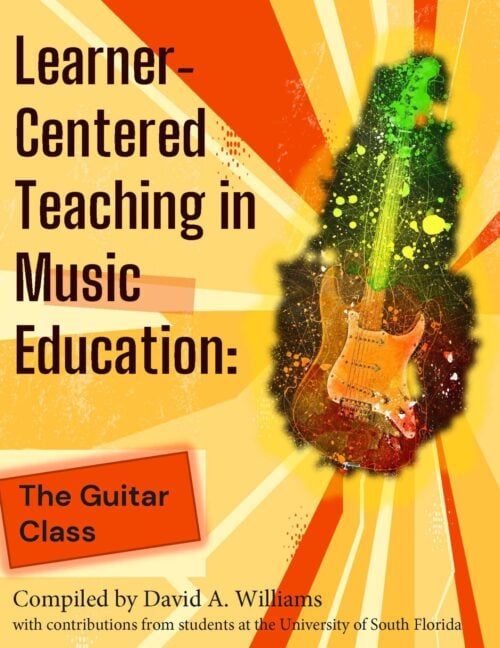
Compiled by David A. Williams
( 459 pages) This is an electronic resource for digital download. This book contains ten curricular settings for guitar classes that are based on learner-centered pedagogical principles. Each class example was created by a pair of undergraduate music education students who were enrolled in a music education methods class designed to build skills in learner-centered techniques. These students were also co-enrolled in an ensemble course where they put their understanding into practice. In addition, they worked with k-12 students in learner-centered practicum settings. While the students lacked full-time teaching experience they were certainly grounded in learner-centered pedagogical concepts. Our hope is that music teachers, at all levels, will find ideas and inspiration in this book. Ideas and inspiration for interesting new music classes that include guitars, and for ways to enhance existing guitar classes. Ideas and inspiration that will stimulate students and help them grow into lifelong music makers. -
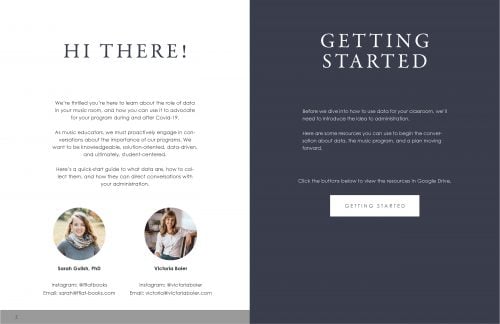
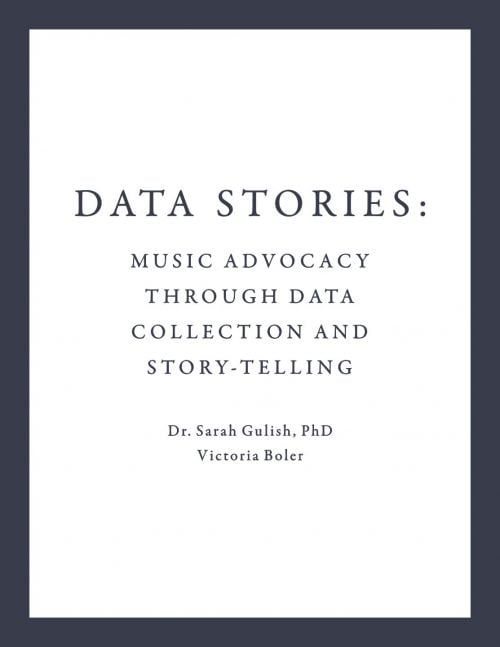
by Sarah Gulish and Victoria Boler
(12 Pages + over 25 pages of editable resources)
This is an eBook for digital download. The purpose of this book is to provide resources for music teachers looking to collect data to better advocate for their programs and reach students. This interactive PDF describes the various types of data, how they can be collected, and how they can be used to create a music program story to share with community members and administrators. Each purchase includes access to a google drive folder with dozens of resources and templates that can be copied and edited, including email templates, google questionnaire forms for students, parents, and colleagues, conversation starters with administrators, sample qualitative stories, sample quantitative stories, and more. -
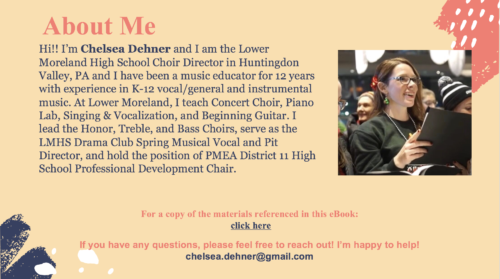
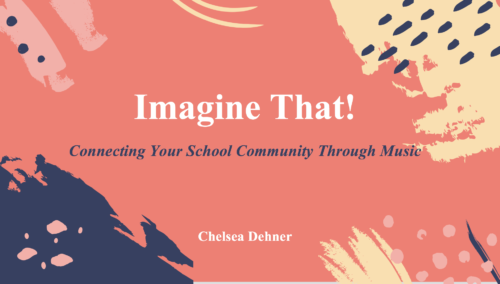
by Chelsea Dehner
(67 slides) This is digital resource. This resource provides everything you need to recreate a music performance project for your staff or your students. Through covering John Lennon's Imagine, school staff can build community and connect with their students, whether virtual or in-person. Use the editable files that accompany this tutorial to create meaning and have some fun with those around you! -
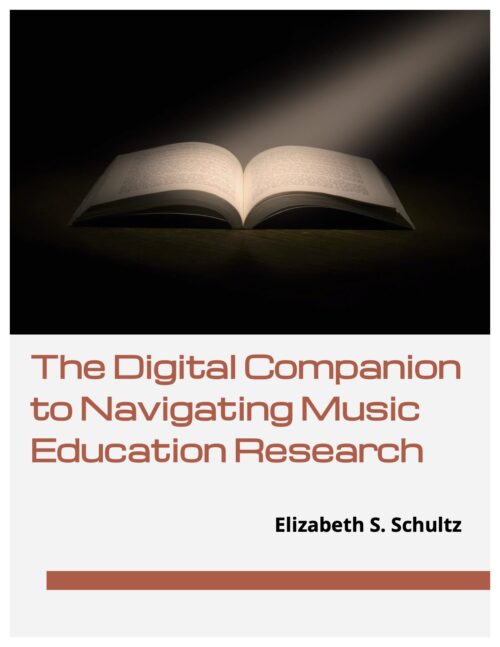 This is an eBook for digital download (82 pages + editable resources) Reading, writing, and conducting research can feel overwhelming. But it can feel especially overwhelming if you’re brand new. This book is the jargon-free field guide, companion, and resource for music education research so that you don’t have to keep emailing your professors.
This is an eBook for digital download (82 pages + editable resources) Reading, writing, and conducting research can feel overwhelming. But it can feel especially overwhelming if you’re brand new. This book is the jargon-free field guide, companion, and resource for music education research so that you don’t have to keep emailing your professors.

